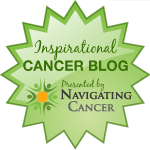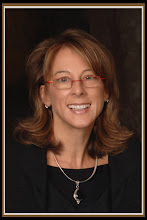 More than one third of Americans will develop cancer, but nearly two thirds will not. Research indicates that while we all carry cancer cells in us, most of have sufficient natural defenses to prevent these cells from becoming cancer. These defenses include our immune system, the ability of the body to control inflammation, and the nutrients in foods that reduce the growth of blood vessels needed by tumors to survive (angiogenesis) and support white blood cells known as natural killer cells (NK cells) which encourage cell death (apoptosis).
More than one third of Americans will develop cancer, but nearly two thirds will not. Research indicates that while we all carry cancer cells in us, most of have sufficient natural defenses to prevent these cells from becoming cancer. These defenses include our immune system, the ability of the body to control inflammation, and the nutrients in foods that reduce the growth of blood vessels needed by tumors to survive (angiogenesis) and support white blood cells known as natural killer cells (NK cells) which encourage cell death (apoptosis). The cellular level is where cancer begins and where nutrition exerts its biggest effect. Fruits and vegetables contain not only vitamins and minerals, but also contain photochemical compounds that play key roles in the body. Phytochemicals aim to stop tumors at the harmless stage before they can develop into cancer. Therefore, a diet based on the regular intake of foods containing high levels of these compounds is a powerful weapon in the war against cancer. The daily consumption of anticancer nutrients is important as disabling cancer cells is a continuous job. Since we are constantly at risk for developing cancer, then we need a steady intake of nutrients to stop tumors at the harmless stage before they develop into cancer. Listed below are foods I recommend you have in your diet. No one food is a magic bullet, so try to incorporate a variety of these foods into your daily diet. The anticancer diet is quite simply a healthy diet that will help you to avoid not only cancer, but other life threatening and challenging diseases as well, and could put you in the healthy two-thirds. And please….eat organic whenever possible, especially for the dirty dozen.
Apples—Yes, there is much truth to the old adage “an apple a day keeps the doctor away”. The apple’s high antioxidant count makes it a powerful cancer fighter and can significantly reduce the risk of developing several forms of cancer. The Flavonoid quercetin may prevent prostate cancer by blocking androgens, a hormone linked to prostate cancer. Apples slow the growth of breast cancer tumors and reduce the risk of colon cancer and liver cancer.

Beans--Phytochemicals in beans have been shown to slow the growth of tumors and the fiber protects against some cancers.
Berries and Stone Fruits-- Blueberries are a delicious part of any anticancer diet, containing significant antioxidants. They are rich in phytochemicals called anthocyanins, which combat free-radical damage in the body and protect against cancer by inhibiting angiogenesis and promoting apoptosis (cancer cell death). Raspberries and strawberries are antiviral and anticancer and promote apoptosis. Berries also stimulate the elimination of carcinogenic substances. Peaches, plums, cherries and nectarines contain phytochemicals such as polyphenols, annthocyanins, catechins, and flavonoids. These are all known to keep the immune system strong and protect against cancer.
 Cruciferous Vegetables (broccoli, cabbages, cauliflower, Brussels sprouts, kale, collard greens, radishes)—Vegetables in this family have an amazing ability to suppress the development of cancer cells Cruciferous vegetables (and their ability to produce sulforaphane) slow the development of cancer by detoxifying carcinogenic substances. They help prevent pre-cancerous cells from developing into malignant tumors; they promote the suicide of cancer cells (apoptosis) and starve tumors of their blood supply (angiogenesis). Each member of this family has a unique set of abilities, so eat a variety. For example, collard greens are very high in lutein, which has been associated with a decreased risk of developing breast, lung, ovarian and colon cancers. Spinach, kale and mustard greens also contain significant amounts of lutein. Broccoli and Brussels sprouts are exceptional sources of anticancer compounds.
Cruciferous Vegetables (broccoli, cabbages, cauliflower, Brussels sprouts, kale, collard greens, radishes)—Vegetables in this family have an amazing ability to suppress the development of cancer cells Cruciferous vegetables (and their ability to produce sulforaphane) slow the development of cancer by detoxifying carcinogenic substances. They help prevent pre-cancerous cells from developing into malignant tumors; they promote the suicide of cancer cells (apoptosis) and starve tumors of their blood supply (angiogenesis). Each member of this family has a unique set of abilities, so eat a variety. For example, collard greens are very high in lutein, which has been associated with a decreased risk of developing breast, lung, ovarian and colon cancers. Spinach, kale and mustard greens also contain significant amounts of lutein. Broccoli and Brussels sprouts are exceptional sources of anticancer compounds.Citrus Fruits—Oranges and other citrus fruits contain anti-inflammatory flavonoids. They also stimulate the detoxification of carcinogens by the liver.
Dark Chocolate (cacao)—Dark chocolate (more than 70% cocoa) contains a number of antioxidants, proanthocyanidines and many polyphenols. These molecules slow the growth of cancer cells and limit angiogenesis.
Flaxseed—Although flax is mentioned in the Omega-3 section, it warrants its own section. Flaxseed is an excellent source of ALA (alpha linolenic acid); it contains immune-enhancing lignans, promotes tumor regression (inhibits tumor growth), apoptosis, and detoxification.
Iodine Rich Foods--Sea vegetables, yogurt, milk, eggs and shellfish supply the body with iodine, a powerful antioxidant that protects against breast cancer and helps to prevent the progression of the disease.
Garlic, Onions, Leeks, Shallots and Chives. The sulfur compounds in this group known as the Allium family slows the development of cancer by protecting against cancer cell growth and by offering protection from damage caused by carcinogenic substances. They promote cell death in colon, breast, lung and prostate cancer, as well as in leukemia.
Ginger—Ginger is a powerful anti-inflammatory and an antioxidant. It also helps reduce the creation of new blood vessels.
Green tea—Green tea is an exceptional source of anticancer compounds. It contains large amounts of catechins (flavanols), the heavyweights responsible for green teas’ anticancer activity, and of these catechins, EGCG (epigallocatechin gallate) is the key. The effects of EGCG are significant as studies have shown that it prevents the development of many tumors triggered by carcinogens and seems to be the leader in ability to inhibit the growth of new blood vessels needed for tumor growth and metastases (angiogenesis). White tea is now coming into the spotlight and could, in fact, have the strongest anti-cancer potential of all teas (more about this later).
Herbs and spices—Herbs such as rosemary, thyme, oregano, basil and mint promote apoptosis in cancer cells and reduce their speed by blocking the enzymes they need to invade neighboring tissues. Rosemary is a powerful antioxidant and anti-inflammatory, and can inhibit the formation of HCAS, the carcinogenic compounds that form when you cook protein, by 75% (so use chopped rosemary in your marinade). Parsley and celery contain an anti-inflammatory that promotes apoptosis and blocks angiogenesis.
Mushrooms—Shiitake, maitake, enoki, crimini, portabella, oyster and yes, plain old button mushrooms support the immune system. Button mushrooms may also curb estrogen production, which is helpful in avoiding hormonal cancers such as breast cancer.
Nuts—Eating walnuts daily may help prevent breast cancer and thwart tumor growth because of their high levels of antioxidants, omega 3’s and phytosterols. Pecans and walnuts contain ellagic acid, which triggers apoptosis. Almonds also have cancer-fighting potential. Pistachios are high in antioxidants. Peanuts are a legume, not a nut, and should be avoided as they inflammatory and are often contaminated with aflatoxins, which are considered carcinogenic. While nuts have many redeeming qualities, they are high in fats and omega 6’s (more about this another time) so eat them sparingly. .
Omega 3’s—Found in some fish, walnuts, flaxseeds, chia seeds and some vegetables—more and more studies suggest that omega 3’s play a key role in cancer prevention. Omega 3’s reduce cancer cell growth in tumors and help reduce the spread of tumors (metastases).
Pomegranates—Pomegranates are rich in antioxidants; the juice helps protect against skin, prostate, colon and breast cancers.
Red grapes and wine—Resveratrol, a compound in red grapes and red wine, stops the development of abnormal cells that can result in breast cancer
Selenium rich foods.--Mixed nuts, seafood and whole grain wheat flour. Selenium is an element found in soil, and is most abundant in foods grown in organic conditions. Selenium stimulates immune cells and particularly natural killer cells (frequently referred to as NK cells) however, be aware that while selenium is protective in proper doses, too much can be toxic. Brazil nuts contain high levels of selenium, so eat just one or two a few times a week. Selenium is also necessary for manufacturing glutathione, the body's own natural antioxidant and anti-cancer agent.
Spices--Mint, thyme, sage, rosemary, basil, ginger, cinnamon, oregano, tarragon are all powerful cancer fighters, fresh or dried, so eat a wide variety daily.
Turmeric and Curry. –Curcumin, the ingredient in turmeric used to make curries, can kill cancer cells by inhibiting the enzymes that cause inflammation in the body; it is the most powerful natural anti-inflammatory known. Curcumin induces cell suicide (apoptosis) in breast cancer cells and inhibits angiogenesis, the growth of new blood vessels in the body. Antiangiogenic agents literally starve the tumor of its blood supply.
Vegetables and fruits rich in Carotenoids —Carrots, yams, sweet potatoes, squash, pumpkin, tomatoes, persimmons, apricots and beets contain vitamin A and Lycopene (a carotenoid), which inhibit the growth cells associated with many cancers. Picture lycopene surfing your body on a seek and destroy mission, mopping up free radicals (those unstable molecules that damage cells, cell membranes, and DNA). Carrots also help protect your skin from the solar damage that leads to skin cancer.
Elyn Jacobs
elyn@elynjacobs.com
elynjacobs.blogspot.com
elynjacobs.wordpress.com
Elyn Jacobs is a certified cancer coach and a breast cancer survivor. She empowers women to choose the path for treatment that best fits their own individual needs. Elyn helps women to uncover the nutritional deficiencies and emotional stress patterns that may have contributed to their cancer and to support their body as it activates it own natural ability to fight the disease. She is passionate about helping others move forward into a life of health and wellbeing. To learn more about Elyn’s coaching services or to learn more about eating for life, please visit: http://elynjacobs.wordpress.com.
















